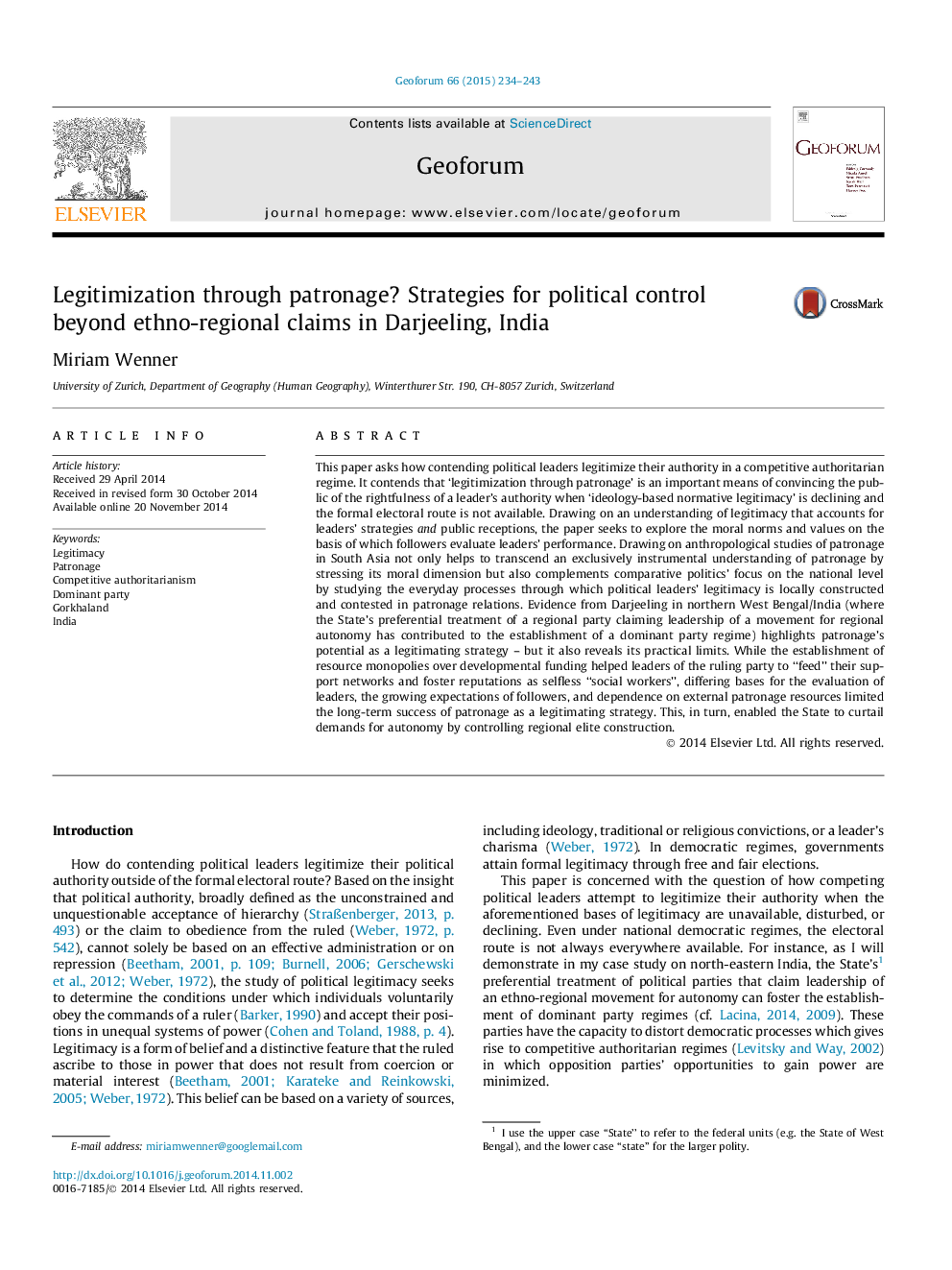| Article ID | Journal | Published Year | Pages | File Type |
|---|---|---|---|---|
| 5073614 | Geoforum | 2015 | 10 Pages |
â¢Ideology-based normative legitimacy must be supported by factual measures.â¢As instrumental and moral relationship patronage can foster leaders' legitimacy.â¢The moral bases of leaders' legitimacy are socially contested.â¢Dependence on external resources limits patronage's success.â¢Autonomous councils enable the state to control regional elite construction.
This paper asks how contending political leaders legitimize their authority in a competitive authoritarian regime. It contends that 'legitimization through patronage' is an important means of convincing the public of the rightfulness of a leader's authority when 'ideology-based normative legitimacy' is declining and the formal electoral route is not available. Drawing on an understanding of legitimacy that accounts for leaders' strategies and public receptions, the paper seeks to explore the moral norms and values on the basis of which followers evaluate leaders' performance. Drawing on anthropological studies of patronage in South Asia not only helps to transcend an exclusively instrumental understanding of patronage by stressing its moral dimension but also complements comparative politics' focus on the national level by studying the everyday processes through which political leaders' legitimacy is locally constructed and contested in patronage relations. Evidence from Darjeeling in northern West Bengal/India (where the State's preferential treatment of a regional party claiming leadership of a movement for regional autonomy has contributed to the establishment of a dominant party regime) highlights patronage's potential as a legitimating strategy - but it also reveals its practical limits. While the establishment of resource monopolies over developmental funding helped leaders of the ruling party to “feed” their support networks and foster reputations as selfless “social workers”, differing bases for the evaluation of leaders, the growing expectations of followers, and dependence on external patronage resources limited the long-term success of patronage as a legitimating strategy. This, in turn, enabled the State to curtail demands for autonomy by controlling regional elite construction.
